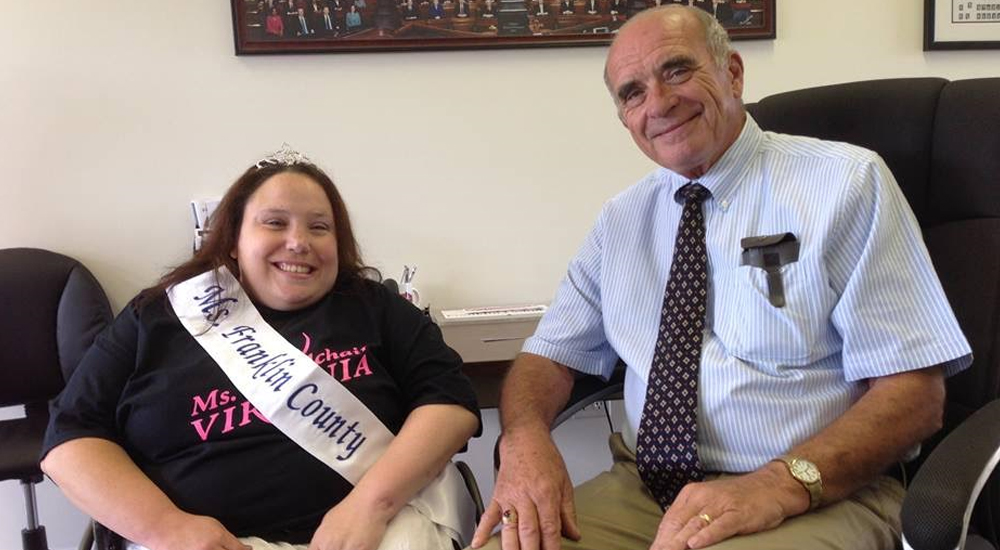General Assembly Sine Die, Part Four
On March 25th, this year’s General Assembly session will officially be adjourned for one month. Over the last few weeks, in Part One, Part Two, and Part Three, I looked at some happenings with our Virginia legislators and a sampling of bills they found significant enough to submit to their colleagues.
The Governor has until midnight on March 27th to put his signature on bills that made the initial trip through both houses. His yea or nay is the second step of the bill journey, and the final round is the veto session on April 5th. Here, the GA may override a vetoed bill with a two-thirds vote of the body.
In decisions that were not surprising, Governor McAuliffe has been busy with the veto pen. He is not a friend to the idea of transparency in Virginia’s voting process or Second Amendment rights; however, just as last year, he is a friend to local government. His official statement on HB1753 is worth reading and is very similar to those he made in 2016 to preserve the authority of Boards of Supervisors at the local level.
“Governor Terry McAuliffe today vetoed House Bill 1753, which would restrict local governments from making their own decisions about the wages that contractors pay employees.
March 17, 2017
Pursuant to Article V, Section 6, of the Constitution of Virginia, I veto House Bill 1753, which would prohibit a local government from requiring that its contractors have a wage floor or other benefit above what is required by state or federal law. In recent years, several local governments have required contractors to pay certain wage levels in contracts with localities. These initiatives have provided access to qualified, high-skilled workers and contractors and successfully addressed significant cost-of-living and workforce disparities in these localities. The ability of other local governments to make this choice should be supported, not limited. Decisions regarding municipal contracts should be made by local leaders who fully understand local needs, and the needs of their workforce. Accordingly, I veto this bill.”
Thanks to the Governor for heading off another attempt to micro-manage local government. Now, if he could just figure out a way to transfer those calls that come to the local offices directly to the members of the General Assembly who originated these bills. Caroline already refers calls about the updated Chesapeake Bay Regulations directly to our Delegates and Senator, but it would be great to have a speed dial mechanism in place for other issues created when localities try to explain or implement policies created at the General Assembly which are unfair, impractical, or have little basis in real life.
As I come to the end of the series, let’s look at a good attempt to head off the creation of sanctuary cites in Virginia. This bill was introduced by a little heralded but practical legislator who is traditionally under the radar screen in state politics. The Honorable Charles Poindexter represents some of the most breathtaking and pristine rural landscape in the Commonwealth. The 9th District includes portions of the Blue Ridge Parkway, then east to Philpot and Smith Mountain Lake.
I give him space here because legislators like Charlie Poindexter and the bills they introduce don’t get much ink, statewide. They provide, however a snap shot on the Virginia General Assembly which is overlooked and a view, not of Richmond and NOVA, but of a Commonwealth, which is no less important.
While it has become fashionable to say nowadays that NOVA and other Virginia cities are overrun with liberal voters and rural Virginia is “in the noise” when it comes to raw votes, many still argue otherwise. In the scheme of things, an extra turnout of five percent in rural Virginia could still be the key to electing conservative candidates. A trip to this delegate’s social media page would certainly bear out the theory that any candidate for office wants what Poindexter has: trust and a close, close relationship with a diverse local electorate.
On his Facebook page, Poindexter keeps in contact with his constituents by actually explaining bills currently before him and the reasoning behind his decisions. He communicates with his people in layman’s terms. He brings citizens up to date on matters of importance to their way of life, tax credits for reforestation, logging fees, Extension agent funding, and studies on black vultures and coyotes that are significant predators in rural Virginia.
His writings and the accompanying pictures are like a window on Franklin, Patrick, and Henry Counties. While he emphasizes bills which would be of primary interest to one of Virginia’s least populated areas, economically based in agriculture and forestry, he is also a good source of information on the day-to-day goings on in the GA.
In addition, legislation introduced by this delegate is not limited to rural Virginia, but geared at solving real issues experienced by citizens all over the Commonwealth. He came to my attention when I was researching bills for this session which included HB2000 which was his legislation aimed at preventing sanctuary cities in Virginia. While the override of local government is intrinsic in the bill, in this case it is necessary for the safety of all Virginians.
Here is HB2000: “Provides that no locality shall adopt any ordinance, procedure, or policy that restricts the enforcement of federal immigration laws.”
The bill passed both houses along partisan lines and has gone to the Governor’s desk to be signed.
Reading a bit more about Charlie makes him even more interesting. He is one of a handful of delegates with local government experience, having served for eight years on the Franklin County Board of Supervisors. He lives near Smith Mountain close to the original 1792 Poindexter home place, and is the son of a farmer, saw-miller, and small business owner. Pictures on his Facebook page show him to be constantly in his district all year with just plain citizens. It’s clear that he’s a big communicator. I recognize well all those photos of Charlie with the “talking hands.” I live with an elected official who is captured by the camera unstaged doing exactly the same thing, all the time. It’s the strong desire to communicate and the Systems Engineer coming out in both of them.
When he’s not in session or in his district office, Charlie spends time, like an old fashioned Virginia politician of another era, in his late father’s shop talking to people. The shop is built from lumber from an old Frick sawmill once owned by his family. Charlie describes the dogs who have guarded the shop over the years, who left their muddy prints on the door, and camped around the wood stove. Today his companion is a Walker hound named Lucy who likes the regulars, but earns her keep letting him know when strangers arrive.
His website has pictures of parades and grandchildren, and has the same simple and easy-to-navigate design of a decade ago with few bells and whistles, and the moniker “votepointdexter.com.” Here is the description of Charlie’s shop.
“Through this doorway pass some of my most loyal and enjoyable friends. They stop by frequently, usually to bring news or the latest weather report, help with or supervise equipment maintenance or repairs, give or ask for advice, or some such excuse to just be there among friends. Many of the regulars are neighbors, some are relatives. All are storytellers, armchair politicians, and American patriots. They or their kin have been stopping by ever since my father built the shop decades ago.”
While it’s clear he’s close to his country roots, the delegate is, however, no bumpkin. He’s an Information Systems guy, with a background as a Senior Systems Engineer. His resume includes stints with NASA, and work with Intelligence and Command and Control software with the USAF, as well as DOD work in many other states and overseas. He was the chief developer of automation for the Air Tasking Order, which is the daily plan for joint and allied air operations in a wartime scenario.
The other significant bill which caught my eye from Delegate Poindexter was HB2002, which passed both houses in the session. This issue has been a subject of discussion here in Caroline especially when it comes to how we would be able to anticipate the added costs to localities in what could or should be provided to refugees from Social Services, and how they would be placed in public schools.
In layman’s terms, this bill would require data for refugee resettlement to be collected and reported so state and local costs can be ascertained and to provide the data required to anticipate and provide resources such as Medicaid, Temporary Assistance for Needy Families, English instruction, interpreters, housing, job placement services, and more.
Governor McAuliffe has already vetoed that bill but it is slated for a second chance. Said Poindexter, “I think the taxpayer should know the costs as well as the elected officials voting the money. HB2002 will be on the agenda April 5th for override consideration.”
Next week, I’ll translate some budget speak and sign off for this year’s session as your friendly General Assembly reporter.


